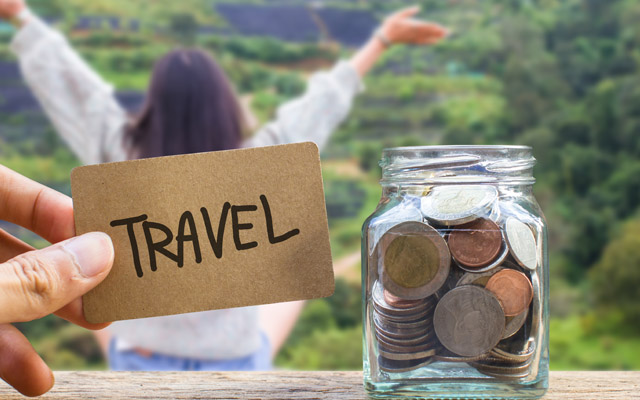Travellers are planning to make nearly as many trips by air in the next year as they did pre-pandemic, according to new research among frequent flyer members of Collinson’s Priority Pass.
Even with rising costs, 62% of members would rather cut back on non-essential retail purchases than reduce their travel budgets. Nearly a third (30%) are prepared to give up restaurants, 25% their gym membership, and over 21% their streaming services.

The research reveals that despite a troubling economic backdrop, travellers plan to make eight return trips on average in the next 12 months – nearly back to the average of ten trips made pre-pandemic in 2019. This is a positive sign to the industry to keep on investing in recovery.
Be it in recruitment and training of additional workforce, core travel industry infrastructure, or travel benefits and rewards, there is a need for continued investment to keep supply chains moving and to help ensure travel gets back to pre-pandemic levels of both delivery and customer experience. This is especially important given 29% of travellers expressed dissatisfaction with how they were treated during the pandemic by an airline provider – and said they had subsequently thought twice about using their services again.
Confidence drivers on a journey
Collinson’s study of over 3,700 frequent flyer members of the Priority Pass programme worldwide provides insight into traveller habits, preferences, loyalties, and intentions as the industry recovers from the pandemic. It follows similar studies in 2020 and 2021.
Emerging from the pandemic, confidence is at the heart of recovery with airport lounge access (47%) still being the thing that travellers were most likely to pay for. In fact, behind knowing that travel companies required other passengers to be vaccinated, being able to access an airport lounge was the second biggest confidence booster for travellers. Over 22% gave it as their top reason for feeling confident about travelling again, while nearly half (47%) listed it in their top three reasons.
Members are also very likely to pay for other premium travel experiences, such as an upgraded seat (43%) or direct flight (39%). The research shows that faceless, contactless and self-services are also becoming increasingly popular. Nearly half (47%) of members said they are more likely to either pay for contactless services or use a self-service bag drop than wait to speak to a human at a desk.
In general, people are feeling far more confident about travelling than they were a year ago. In last year’s survey, 35% of members said they felt cautious about travelling in the future – that figure has more than halved to 16% this year.
Loyalty matters
The survey also reinforces a growing interest in travel loyalty programmes post pandemic, with 43% of respondents now stating a growing interest and 24% stating that they are very interested.
In terms of the best way to engage with interested members, 80% stated access to benefits and perks as the main motive for engagement, while 58% stated the opportunity to earn rewards as the second main driver. This is crucial insight for loyalty programme providers and travel brands which are looking to win back and re-engage dissatisfied customers, and poses an opportunity for savvy brands that are looking to better connect with consumers, whether it be through benefits and perks or loyalty programmes that really engage.
Travelling for love and leisure, not business
Just like last year, people are still more likely to be travelling for leisure (45%) than for business (35%). In fact, many are travelling at the moment to nurture relationships. When asked the reasons for travelling, nearly 30% of members said that they wanted to travel to make memories with their families, while 18% said they wanted to get away with someone special.
The most frequently claimed motivation for travel is the same as it has always been: to rest and relax. Over half (55%) listed this in their top three reasons for making a journey.
“Our latest research is great news for the beleaguered travel industry, suggesting that as a cost of living crisis looms in many parts of the world, travel spend is way down the list of things that people will consider cutting from their household budget. But it also indicates that it is frequent flyers who will be leading the charge and in order to maintain the trajectory of travel recovery, a specific focus on their needs is paramount across the travel ecosystem,” said David Evans, Joint CEO at Collinson.




















